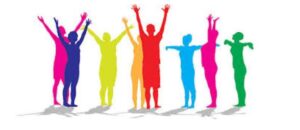 REFLECTIONS ON AGING AND THE BODY,
REFLECTIONS ON AGING AND THE BODY, Recognizing changes in the body, a diminishing of vigor and strength, often marks an awareness of aging. The physical process of growing older can lead to a gap between the reality of body limitations, and feelings of what we can do. It is useful to take note of how our relationship with the body shifts over time; what body changes we have experienced, and how we feel about them. What importance have they had in our daily living? Which changes have been positive, and which not so? Reflecting on answers to these questions helps gain insight into physical aspects of aging.
What kind of control do we have over how our bodies age? It seems that often we have limited control, but at the same time greater freedom to adopt positive attitudes about the process of body changes. An example is the difference between suffering and pain. Pain is genuine hurt, physical or emotional, while suffering is additional distress we experience as a result of the stories we tell ourselves about the pain. When we identify attitudes and feelings behind these stories, we can choose to keep them or let them go, to move through the suffering and deal with the pain.
A teaching of the Buddha is useful to remember: “In life we cannot avoid change, we cannot avoid loss. “Freedom and happiness are found in the flexibility and ease with which we move through change” (from BUDDHA’S LITTLE INSTRUCTION BOOK by Jack Kornfield).
According to Rabbi Rachel Cowan and Dr. Linda Thal, authors of WISE AGING…(Behrman House, 2015, p. 66), wonder, appreciation, patience and compassion for our bodies and for ourselves help us to move beyond resignation. Aging presents an opportunity to befriend our body in new ways and make peace with it. It is important to be aware and grateful when the body is working as it is meant to do. However, this gratitude may be difficult to sustain. A touch of humor can help.
The issue of body image is complex, and plays out differently for men and women. One’s self image is impacted by cultural standards and norms. The physical impact of aging is still more easily overlooked in men than in women. However research suggests that many women may feel less stress about body image as they age. Instead they can prioritize inner or spiritual dimensions of everyday living.
Jewish tradition recognizes the importance of the body and the role it plays in connecting us to the divine. As Reb Zalman Schacter Shalomi writes (in FIRST STEPS TO A NEW SPIRIT, p. 39), “The joys of the body enhance the joys of the soul. When the body dances, the soul claps her hands.” Embodiment in Jewish practice has been actively introduced within Jewish Renewal services, celebrations and rituals. This includes being present with all parts of the self, listening to the body deeply and intuitively, moving with awareness and intention. It can be seen as part of a trend toward closer and deeper connection with the earth, a recognition of our interrelationship with all living beings on the planet. According to Rabbi Diane Elliott, a prayer service entered in an embodied way is a teshuvah practice, a returning and turning, a welling up from within, an expression of wisdom coming up.
As Rabbi Jeremy Parnes writes:
“In these bodies we will live.
In these bodies we will die.
Where you invest in your love
you invest in your life.

Sign up for a monthly newsletter about upcoming Kol Ami events and programs.